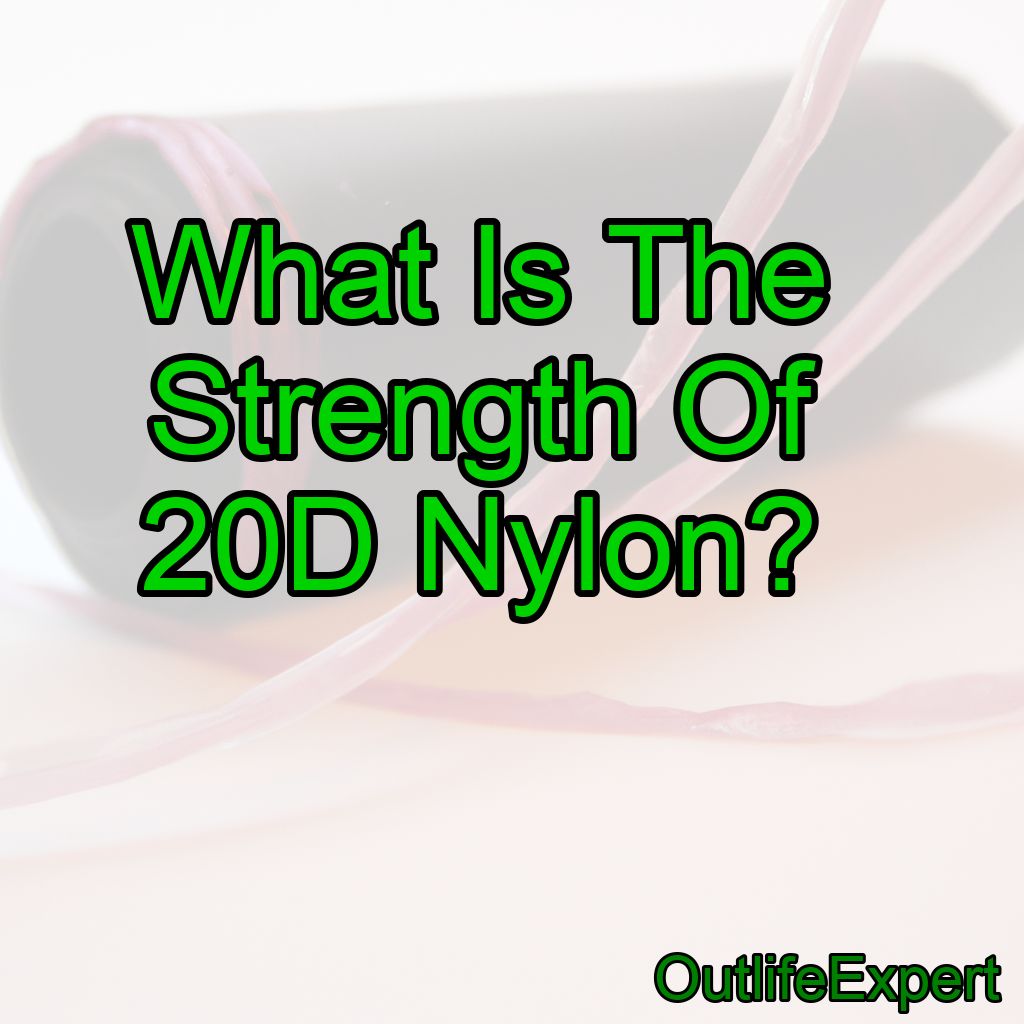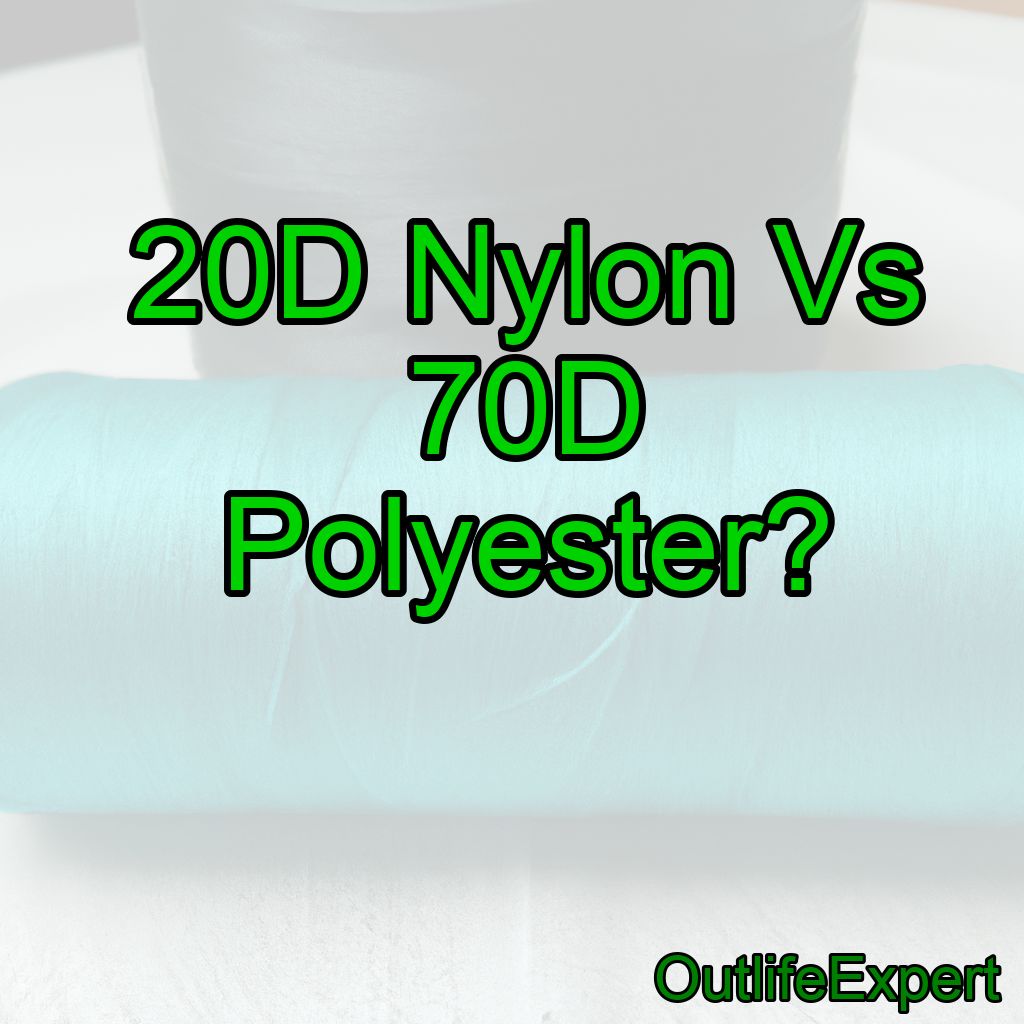Nylon is a versatile and popular synthetic fabric that has been used for decades in the production of various products, ranging from clothing and accessories to industrial materials.
It was first introduced in the 1930s and quickly gained popularity due to its strength, durability, and resistance to wear and tear. One of the most common types of nylon used in outdoor gear and clothing is 20D nylon, which provides a lightweight yet durable solution for various applications.
The Science Behind the Strength of 20D Nylon
Nylon is a type of polymer, which is a large molecule composed of repeating units called monomers. In the case of nylon, the monomers are linked together through a process called polymerization, which creates a strong and flexible material.
250D nylon breaks at around 50N and depending on the fabric density and sewing technique, 20D nylon will break at around 5-10N of tensile force.
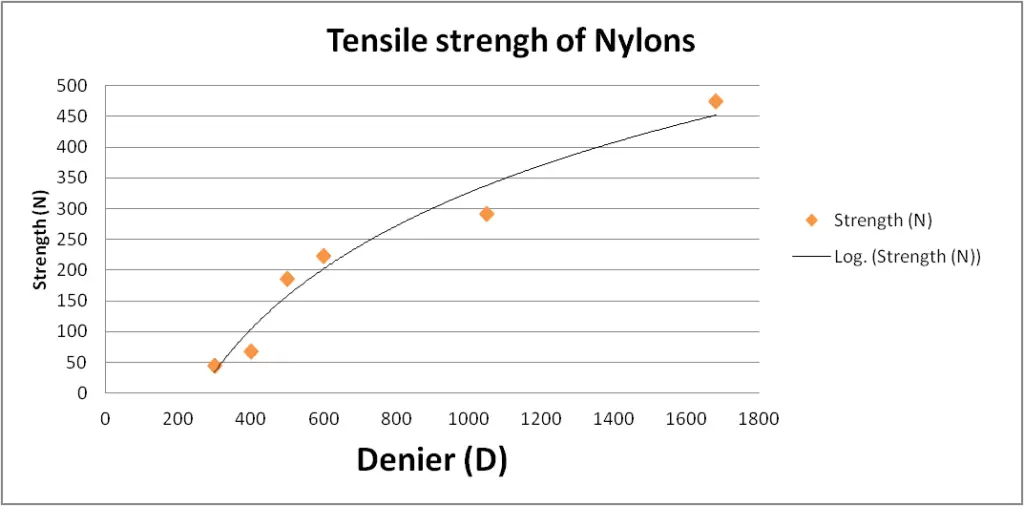
The strength of nylon comes from its molecular structure, which is made up of long chains of molecules that are held together by hydrogen bonds. These bonds give nylon its high tensile strength and resistance to abrasion.
What Does “20D” Mean?
The “D” in 20D nylon stands for “denier,” which is a unit of measurement used to describe the linear mass density of fibers. It is equal to the mass (in grams) of 9,000 meters of the fiber.
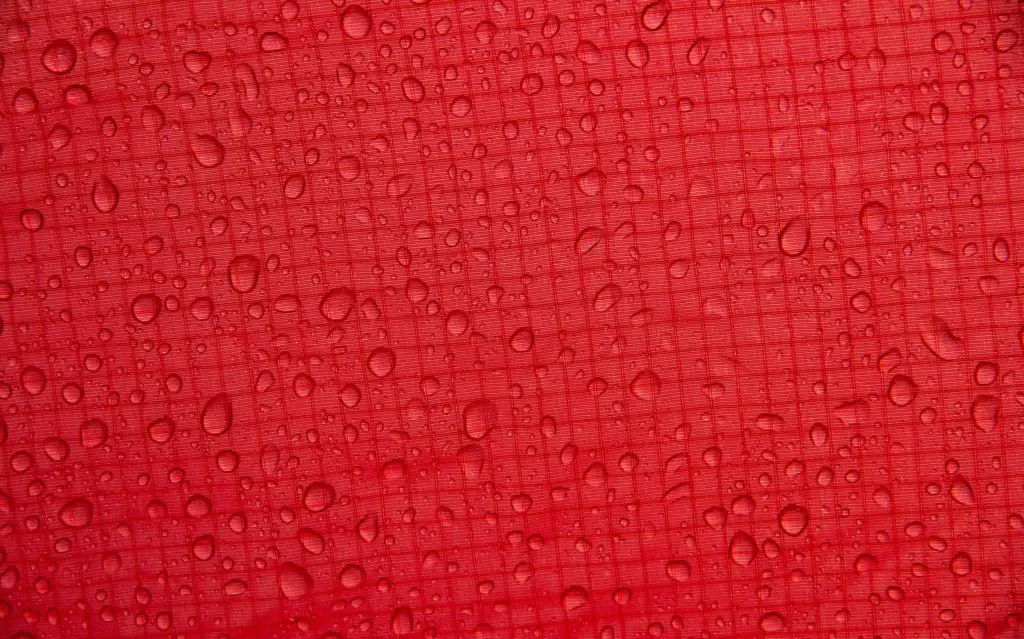
A higher denier number indicates a thicker and heavier fiber, while a lower denier number indicates a thinner and lighter fiber. Therefore, 20D nylon is a relatively lightweight fabric, making it suitable for applications where weight is a concern, such as backpacking and ultralight camping.
Comparing Deniers: 20D vs. 30D vs. 70D
To give you a better understanding of the differences between various denier ratings, let’s compare 20D, 30D, and 70D nylon:
- 20D nylon is lightweight and offers a good balance between durability and weight, making it ideal for ultralight backpacking gear and lightweight clothing items.
- 30D nylon is slightly heavier and more durable than 20D nylon, making it suitable for applications where additional strength and abrasion resistance are needed.
- 70D nylon is much heavier and more durable than both 20D and 30D nylon, making it ideal for heavy-duty applications and high-stress environments.
Applications of 20D Nylon
Due to its lightweight and durable properties, 20D nylon is commonly used in various outdoor gear and clothing items. Some of the most popular applications include:
Backpacks
20D nylon is a popular choice for ultralight backpacks, as it offers a good balance between weight and durability. Backpack manufacturers often use 20D nylon for the main body of the pack, while reinforcing high-wear areas with heavier denier fabric for added strength and durability.
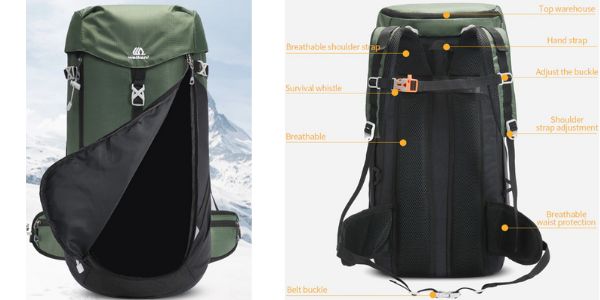
Tents
Ultralight tents often use 20D nylon for the canopy and floor material, as it provides a lightweight and durable solution for sheltering backpackers from the elements. The use of 20D nylon helps to reduce the overall weight of the tent, making it easier to carry on long backpacking trips.
Jackets and Clothing
Many lightweight rain jackets and windbreakers use 20D nylon as the main fabric, as it offers a lightweight and breathable solution for protecting against the elements. The lightweight nature of 20D nylon makes these jackets highly packable, making them an ideal choice for backpacking and other outdoor activities where space is limited.
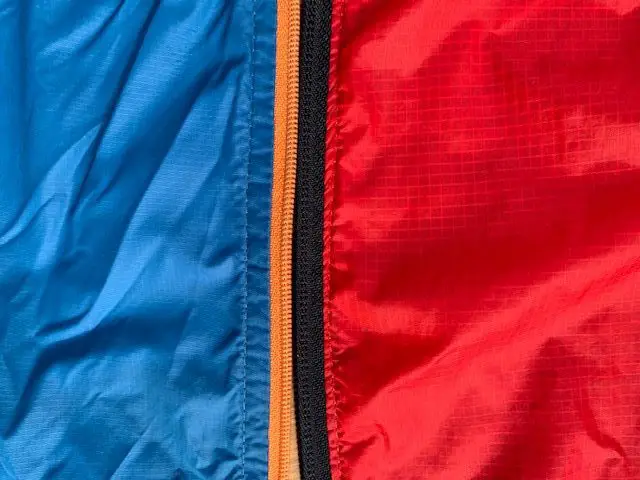
Factors Affecting the Strength of 20D Nylon
While 20D nylon is inherently strong due to its molecular structure, there are several factors that can affect its overall strength and durability:
Coatings
Many 20D nylon fabrics are treated with various coatings to improve their performance and durability. For example, silicone and polyurethane coatings can be applied to increase water resistance, while Durable Water Repellent (DWR) treatments can help the fabric shed water more effectively. These coatings can enhance the fabric’s performance, but they can also add weight and reduce breathability.
Manufacturing Process
The manufacturing process used to produce 20D nylon can also impact its strength and durability. For example, fabrics that are woven tightly with high-quality fibers will generally be stronger and more durable than loosely woven fabrics with lower-quality fibers.
Care and Maintenance
Proper care and maintenance can greatly impact the strength and longevity of 20D nylon products. Washing and drying the fabric according to the manufacturer’s instructions, as well as avoiding exposure to direct sunlight, can help maintain the fabric’s strength and performance over time.
Conclusion
In conclusion,the strength of 20D nylon lies in its impressive balance of lightweight and durability, making it an ideal fabric for various outdoor gear and clothing items. Here are 10 facts about 20D nylon:
1. Nylon is a popular synthetic fabric known for its strength, durability, and resistance to wear and tear.
2. 20D nylon is a lightweight fabric that offers a good balance between weight and durability.
3. The “D” in 20D nylon stands for “denier,” a unit of measurement used to describe the linear mass density of fibers.
4. A higher denier number indicates a thicker and heavier fiber, while a lower denier number indicates a thinner and lighter fiber.
5. 20D nylon is commonly used in ultralight backpacks, tents, and lightweight jackets and clothing.
6. Coatings, such as silicone and polyurethane, can be applied to 20D nylon to improve its water resistance and durability.
7. The manufacturing process used to produce 20D nylon can impact its strength and durability.
8. Proper care and maintenance can help maintain the strength and performance of 20D nylon products.
9. Comparatively, 30D and 70D nylon offer increased durability and abrasion resistance at the cost of added weight.
10. The lightweight nature of 20D nylon makes it an ideal choice for backpacking and other outdoor activities where weight and packability are important factors.
FAQs
What is the difference between 10D and 20D nylon?
The difference between 10D and 20D nylon lies in their denier count, which indicates the fiber thickness and weight. 10D nylon has a lower denier count, making it thinner, lighter, and more delicate than 20D nylon. Conversely, 20D nylon has a higher denier count, resulting in a thicker, heavier, and more durable fabric. While 10D nylon is preferred for ultralight applications, 20D nylon offers better abrasion resistance and durability, making it suitable for more demanding outdoor gear and activities.
What is the difference between 20D and 10D sleeping bags?
The main difference between 20D and 10D sleeping bags lies in the denier of the fabric used. Denier (D) is a unit of measurement indicating the thickness and durability of fibers in the fabric. A 20D sleeping bag uses a 20-denier fabric, while a 10D sleeping bag uses a 10-denier fabric.
A 10D sleeping bag is typically lighter and more compressible due to its thinner fabric, making it a popular choice for ultralight backpackers. However, it is less durable and may be less resistant to abrasion and wear compared to a 20D sleeping bag. On the other hand, a 20D sleeping bag offers better durability and resistance to wear and tear, but it may be slightly heavier and less compressible than a 10D sleeping bag.
Is 20D nylon waterproof?
20D nylon fabric is not inherently waterproof, but it can be treated with a waterproof coating or a durable water repellent (DWR) finish to make it water-resistant. However, water-resistant does not guarantee complete waterproofing, as the fabric may still allow water to seep through under heavy or prolonged exposure to water.
How waterproof is 20D?
20D refers to the fabric’s denier, which is a unit of measurement for the thickness of fibers. It does not directly indicate the waterproofing capabilities of a fabric. However, a lightweight 20D fabric can be made waterproof by applying a durable water repellent (DWR) coating or using a waterproof membrane. The waterproofness of a 20D fabric would depend on these additional treatments, and it is usually measured in terms of hydrostatic head, which is given in millimeters (e.g., 10,000mm).
What does 10D nylon mean?
10D nylon refers to a type of nylon fabric that has a denier of 10. Denier (D) is a unit of measurement that indicates the thickness and weight of individual fibers used in a fabric. A lower denier number, like 10D, means the fibers are thinner and lighter, resulting in a more lightweight and breathable fabric. This type of nylon is commonly used in outdoor gear, such as tents and jackets, where both weight and durability are important factors.

